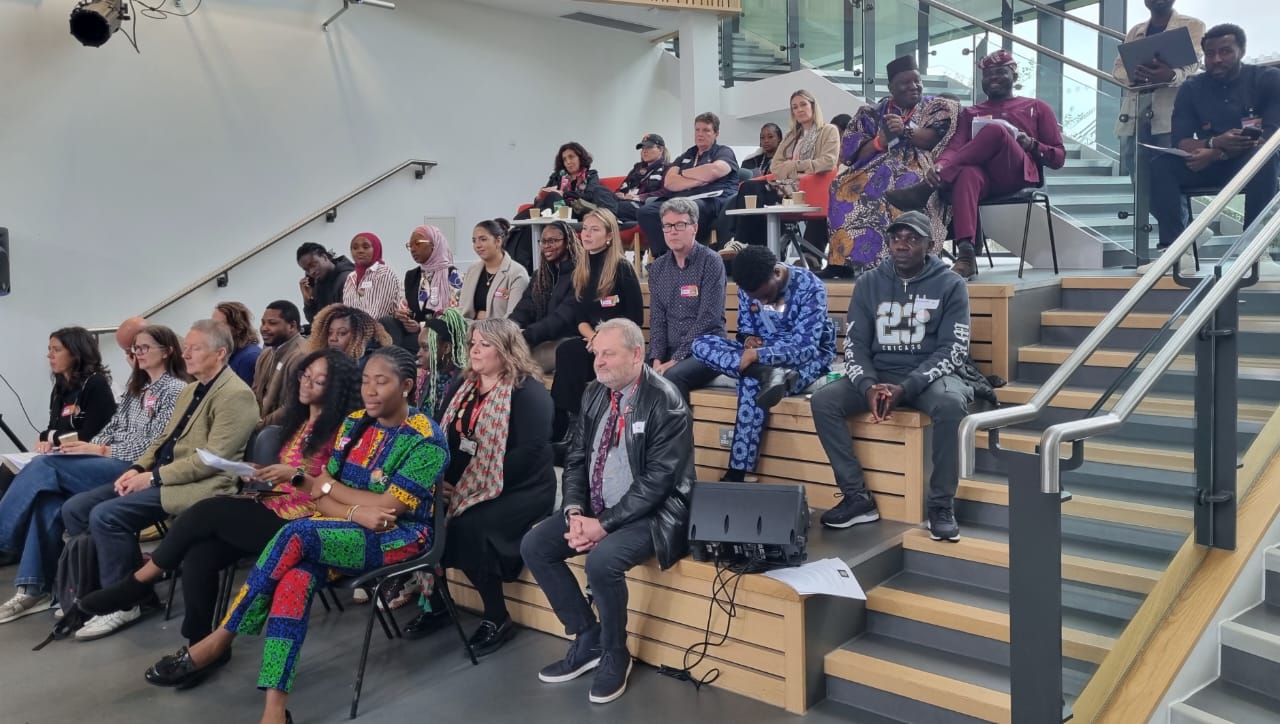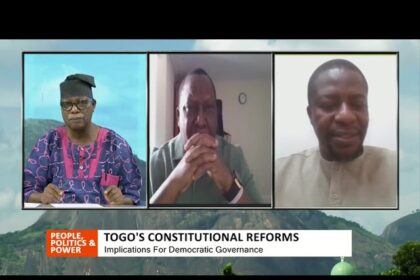At a time when the international community is battling the negative consequences of renewed individualism, nationalism, racism, and the marginalization of minority groups, Bournemouth University on the south coast of England has marked Black History Month with a Summit highlighting what is possible when human diversity is harnessed to promote equity, fairness, and inclusion.
Themed “Resilience, Representation, and Reform: Shaping the Future Together,” the 2025 Summit brought together staff, students, alumni, and community partners to celebrate leadership, identity, and inclusion.
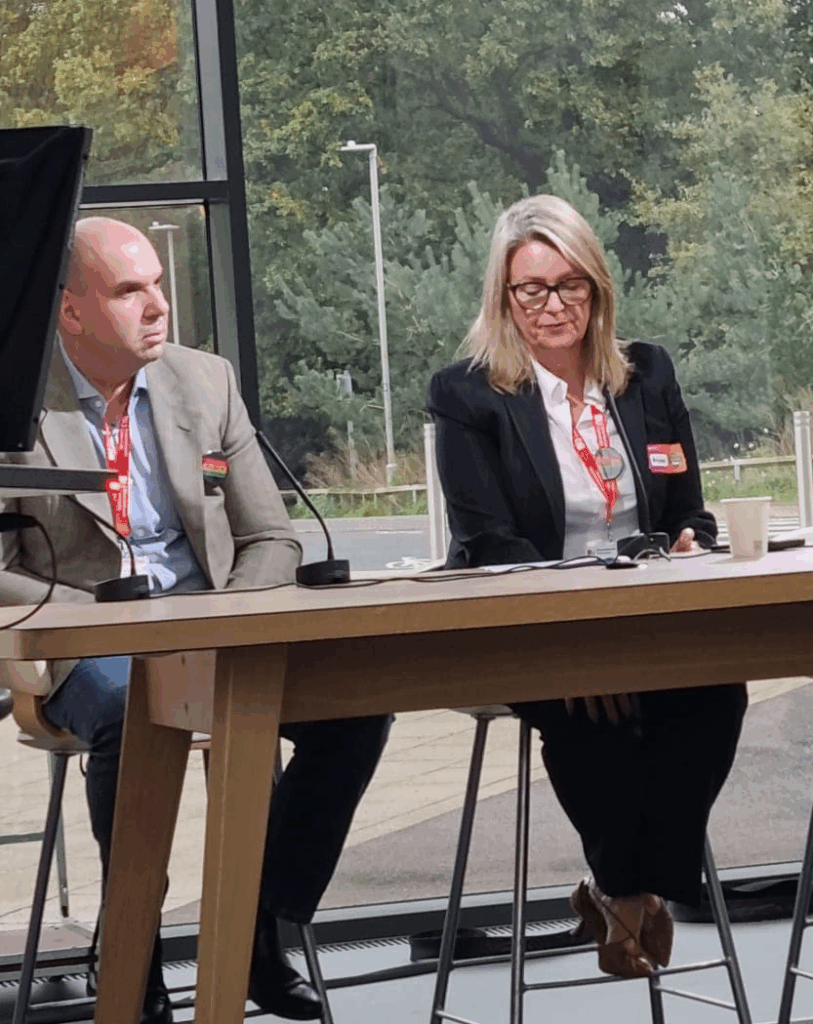
(R-L) BU VC Prof Honour and Pro VC Prof Gatzidis
Opening the Summit, Prof. Alison Honour, the University Vice-Chancellor and CEO, used the lived experiences of several Blacks to illustrate her point, noting: “This year’s theme… Speaks directly to the heart of what we strive for as a university community.”
“Resilience is the thread that runs through the entire tapestry of Black History,” she said. “It is the ability to rise, to endure, and to transform adversity into strength.”
“Quoting Harriet Tubman, the Black American abolitionist, who “escaped slavery and risked her life repeatedly to lead others to freedom,” Honour said, “Her courage and determination are a testament to the power of resilience.”
“Representation is about visibility, voice, and value,” said the VC, emphasizing. “It’s about who gets to be seen, heard, and celebrated.”
She said, “At BU, we are proud to be a global university, with students and staff from over 130 countries. This diversity enriches our learning, our research, and our community. But representation is not just about numbers – it’s about ensuring that every person feels seen and valued.”
VC Honour continued: “At BU, reform means embedding equality and inclusivity into every area of university life. It means listening, learning and, acting. It means asking ourselves, how can we do better? How can we be more inclusive, more just, and more representative?
She acknowledged that “…there is always more to be done,” quoting the Higher Education Statistics Agency (HESA) 2023/24 data, which shows that of the estimated 23,000 professors in the UK, only 250 were Black, made up of 180 males and 70 females.
“As Vice-Chancellor, I am committed to leading BU in a way that ensures everyone feels welcome, safe, and heard,” she said, adding: “I want us to be a university where inclusivity is not just a value, but a lived experience.”
Prof. Christos Gatzidis, Pro Vice-Chancellor and Dean, Faculty of Media and Communication, echoed Honour’s sentiments, explaining how EDI (Equity, Diversity, and Inclusion) data were being deployed to promote fairness, celebrate diversity, and create inclusive environments where everyone felt respected and empowered.
He noted that it went beyond surface-level efforts and sought to address systemic inequalities and historical disadvantages faced by marginalized groups.
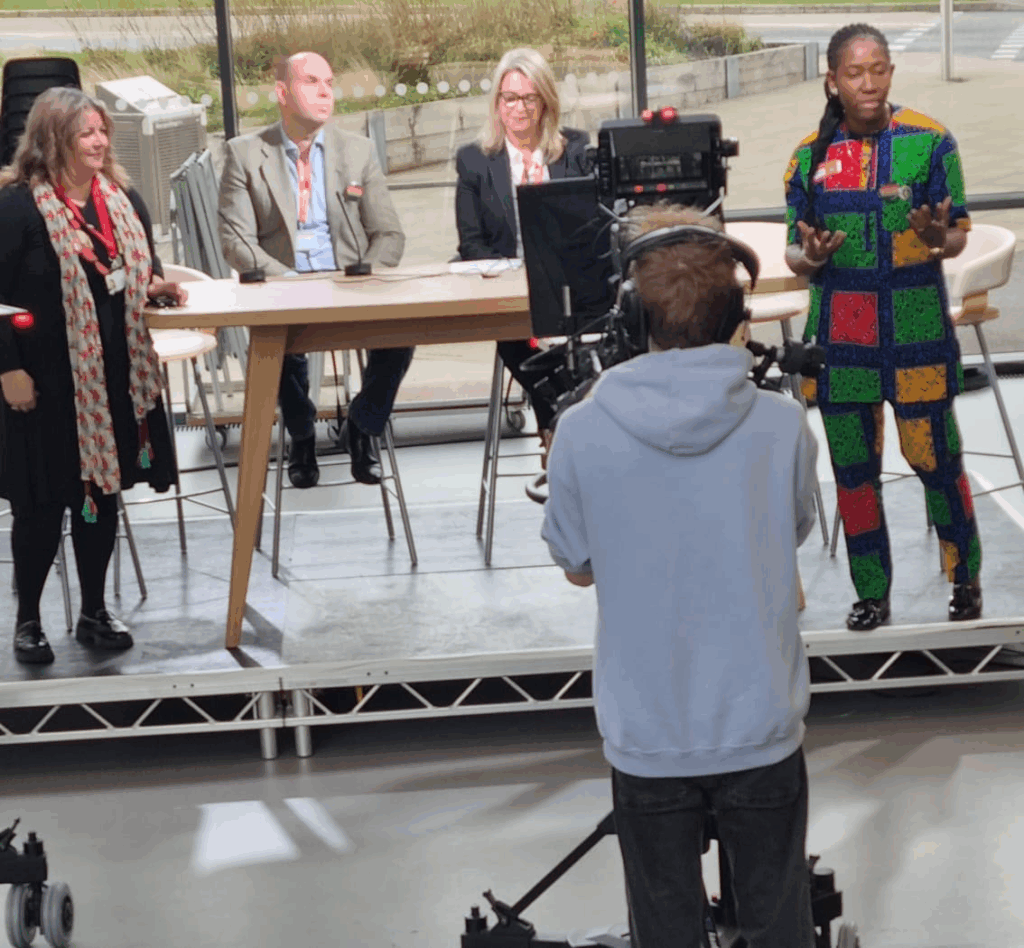
(R-L) Dr Ejime-Okereafor and Dr Iannuzzi, making introductory remarks
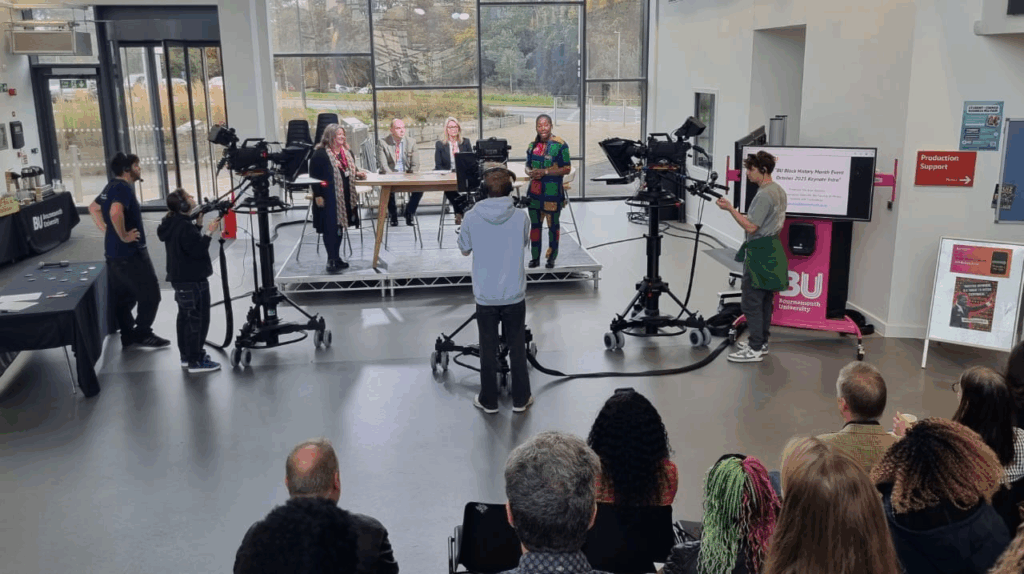
In their introductory remarks, Dr. Emmanuella Ejime-Okereafor and her colleague, Dr. Laura Iannuzzi, Co-Chairs of the Race Equality Network, said their team had tried to make this year’s Black History Month Summit “interactive, creative, and exploratory,” with four breakout workshops, three panel discussions, cultural displays, and an exhibition.
The four workshops were on Creativity and Storytelling, Representation in Action, Arts and Culture, and Race, Sport and Media.
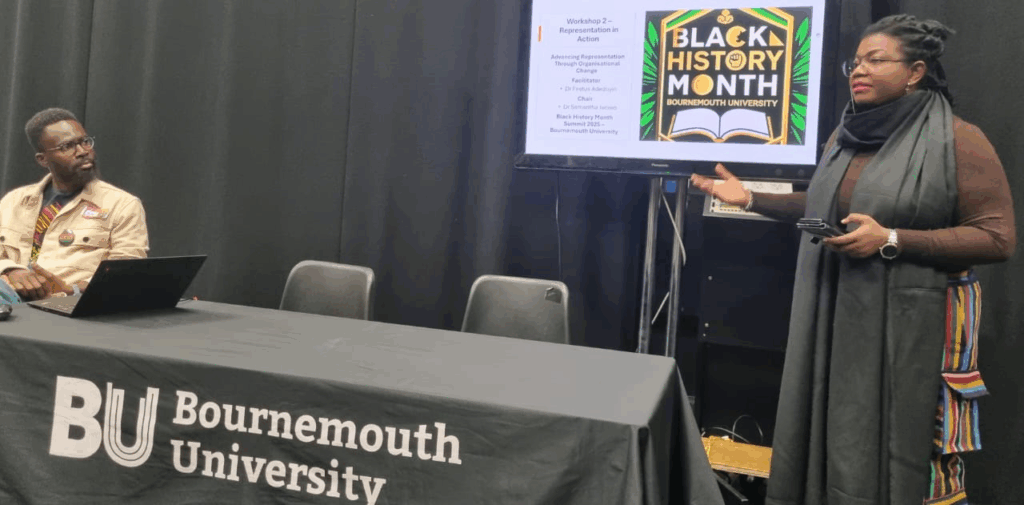
Dr Festus Adedoyin and Dr Samanta Iwowo facilitating one of the workshops
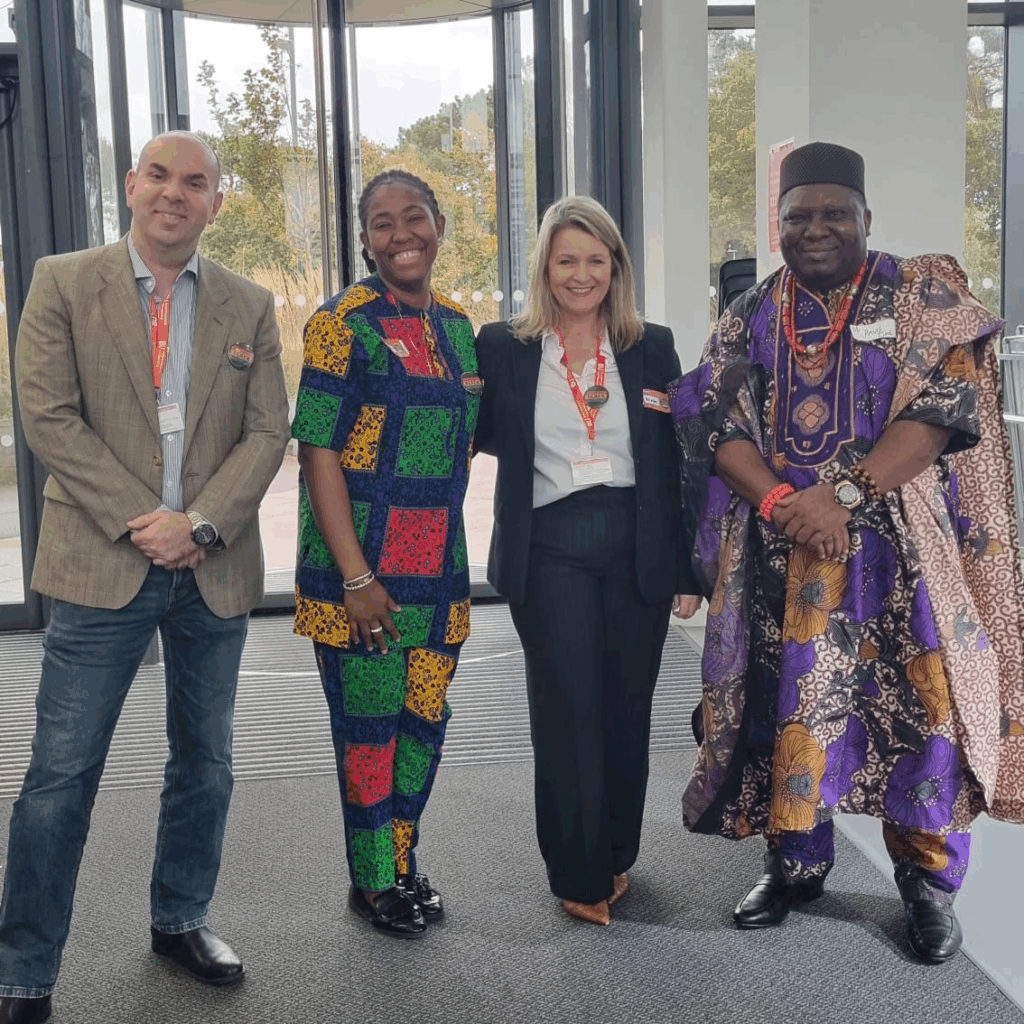
(l-R) Prof Gatzidis, Pro VC BU, Dr Ejime-Okerafor, VC Prof Honour and Dr Ejime-Okereafor’s father, Paul Ejime
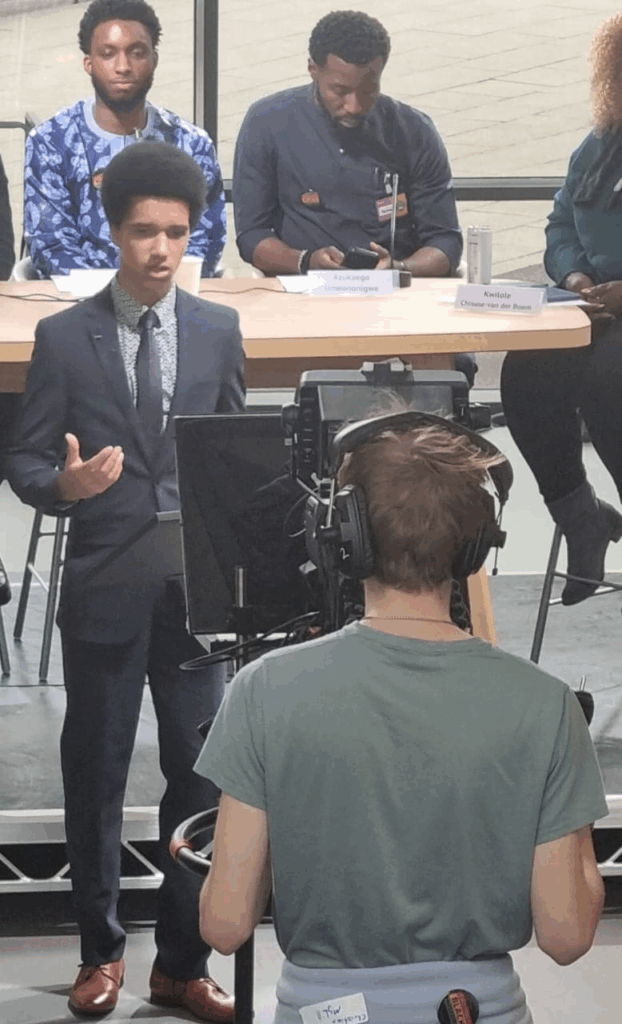
Master Andrew, making his presentation
Andrew Kenechukwu Szewczyk, a 14-year-old, received plaudits for his presentation, which demonstrated a deep knowledge of Black History
Born to a Nigerian mother and a Polish father, Andrew is studying for his GCSEs (General Certificate of Secondary Education) and plans to major in Software Engineering at the University with a specialization in AI.
“In this world, we experience seas of knowledge that lie under the sweltering heat of misinformation, the spectre of confirmation bias, and the tumultuous breeze of political correctness,” he said, adding: “…things of the world are comforting, conformative, consoling, legitimising, and accepting, but they are void of truthfulness.”
“But dear guests, I tell you, if one were to sit under the comfortable shade of a great oak tree, let them remember the role of the unseen, underrepresented root that birthed that oak tree,” Andrew said. ”Where there blows winds of human imagination, there catches the fire of the Black man’s innovations…, (and) …a civilisation without the Black man is like a bank bankrupt of finances, a military bereft of manpower, or a Samaritan void of a heart.”
He called Africa “the lateral root,” and the “Black man the bearer of a fire that ceases to fade… a beacon of endurance, faith, and unyielding resilience.”
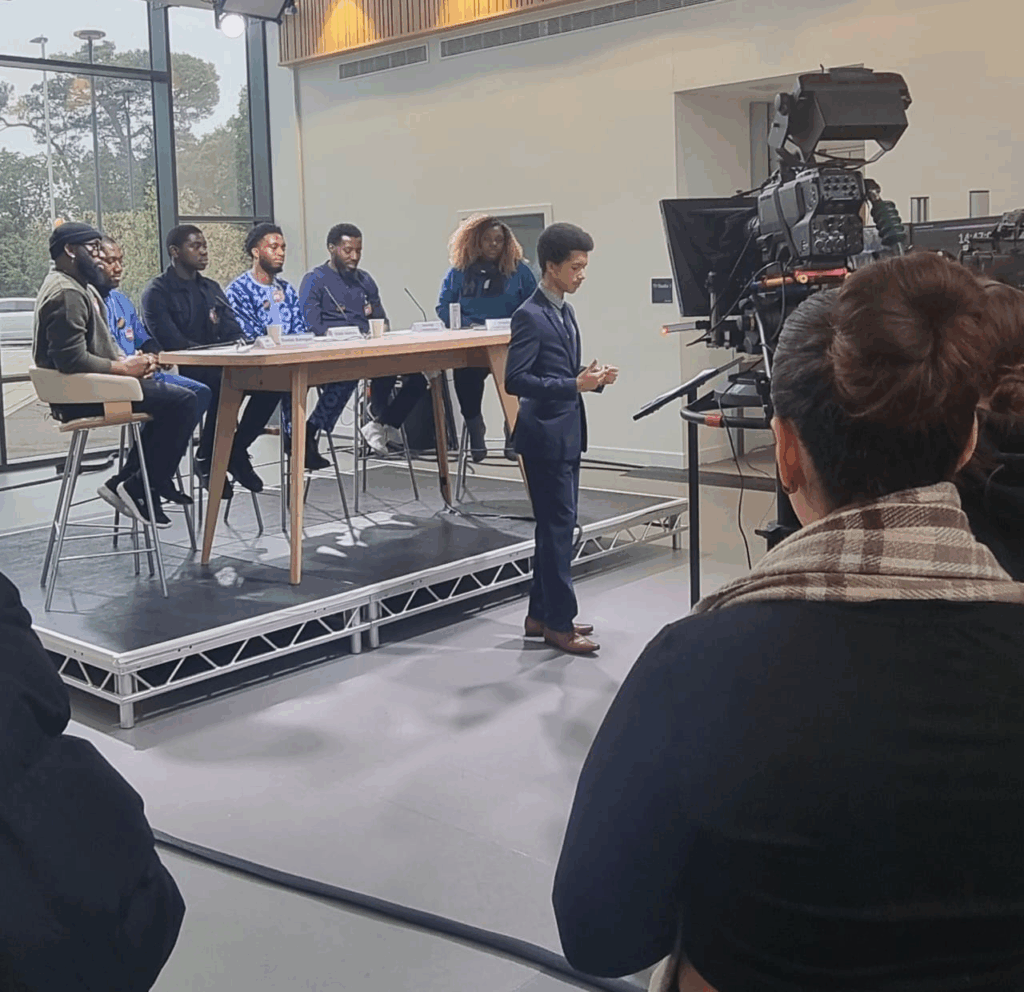
Andrew told the audience: “All of you bear this beacon, and there is still work to be done,” adding: “It is up to you to stand when others fall. It is up to you to master the community’s fate… And as we have seen from the unyielding resilience throughout history. It is up to you to bring to birth a new world, from the ashes of the old world.”
The summit attendees included business entrepreneurs, researchers on Racism in Sports and Media, Leadership, Data Analytics and FinTech, Sustainability and Organizational Behaviour, Social Workers, EDI and Engagement, Disability and Engagement, Community Development Initiatives, AI enthusiasts, and students.
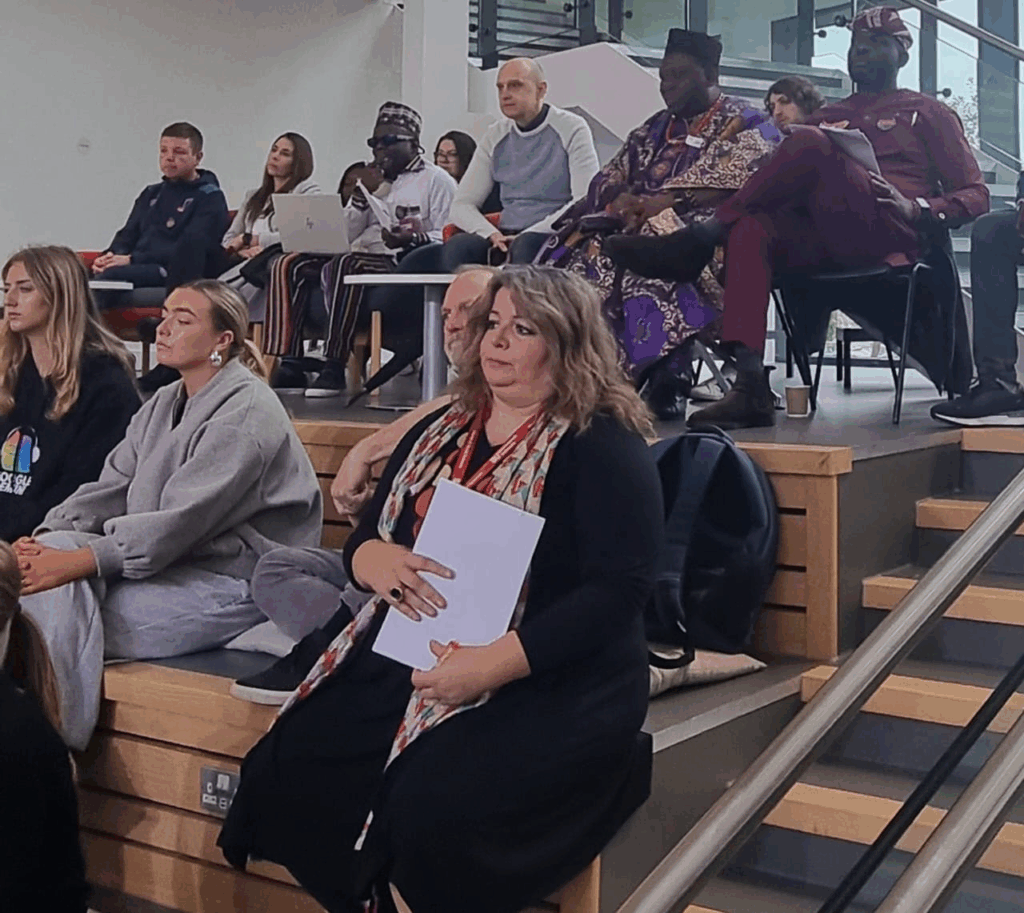
Attendees
In the spirit of the occasion, the main meal enjoyed by the participants was Jollof rice, popularized by three West African countries – Nigeria, Ghana, and Senegal.
The day began with a Community Showcase featuring creative and digital exhibits such as “The Space Between Us” by Iyiade Adetoba, “This Black Girl Can” by BU alumnus Tito Olawole, “Celebrating Alumni Success” by Dr Kwilole Chisuse-van der Boom, and “Creative works of students” by Dr Rebecca Bond and her team, alongside a video interview with VC Honour, reflecting on leadership, belonging, and the future of EDI.
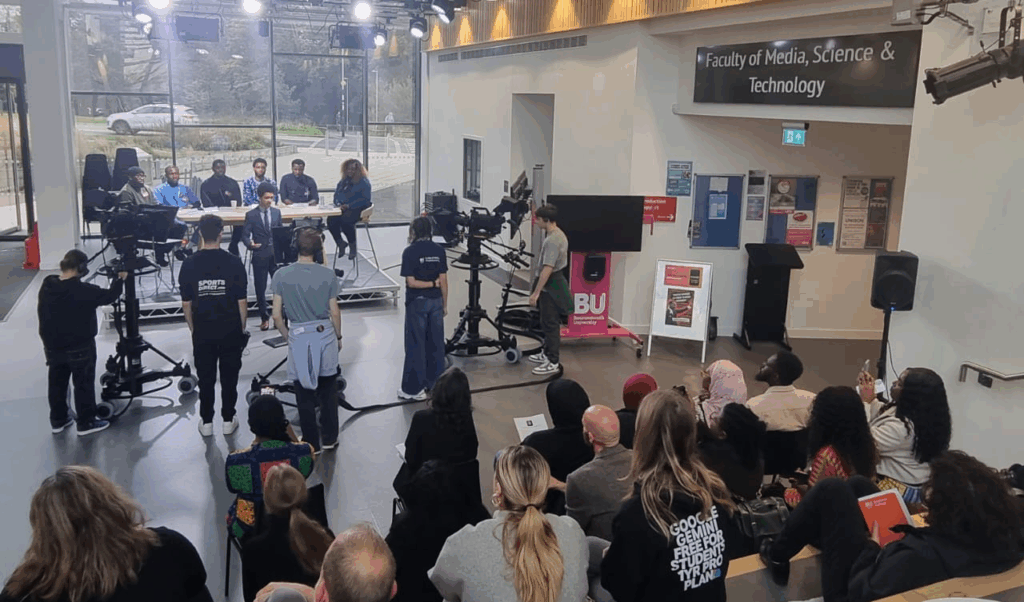
Panel discussion
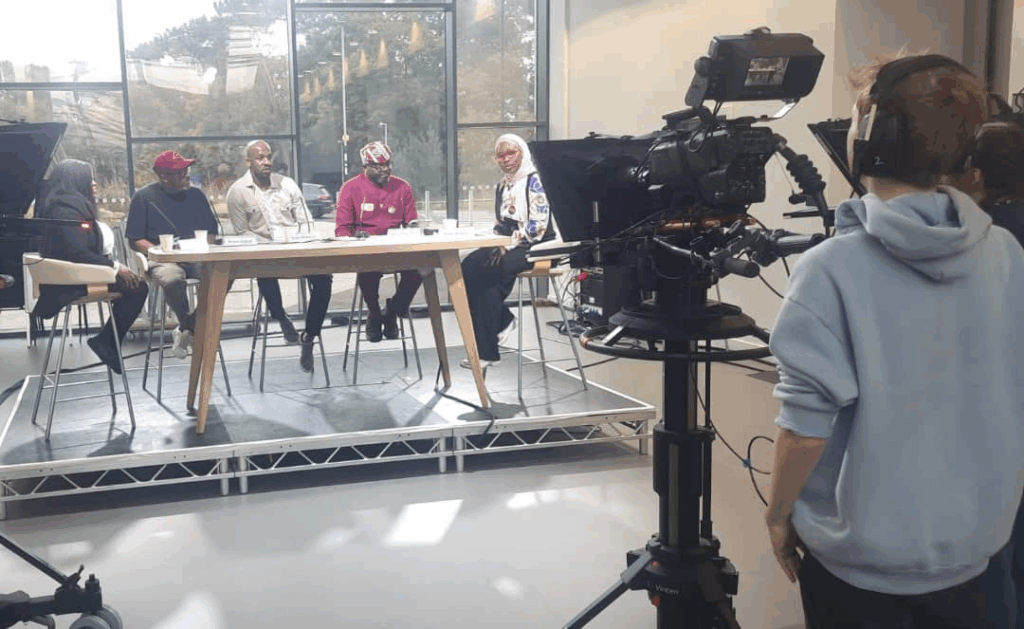
The panel discussions featured contributors from diverse professional and community backgrounds. Representatives from AFC Bournemouth, Dorset Race Equality Council, Nativ Bournemouth, Student Union, University Staff, and others engaged in conversations on policy, leadership, creativity, and representation, sharing insights into representation and leadership in sport
The summit concluded with a networking reception and cultural showcase, catered by Nativ Bournemouth, offering authentic African-inspired dishes that captured the spirit of the day, celebrating culture, creativity, and community connection.
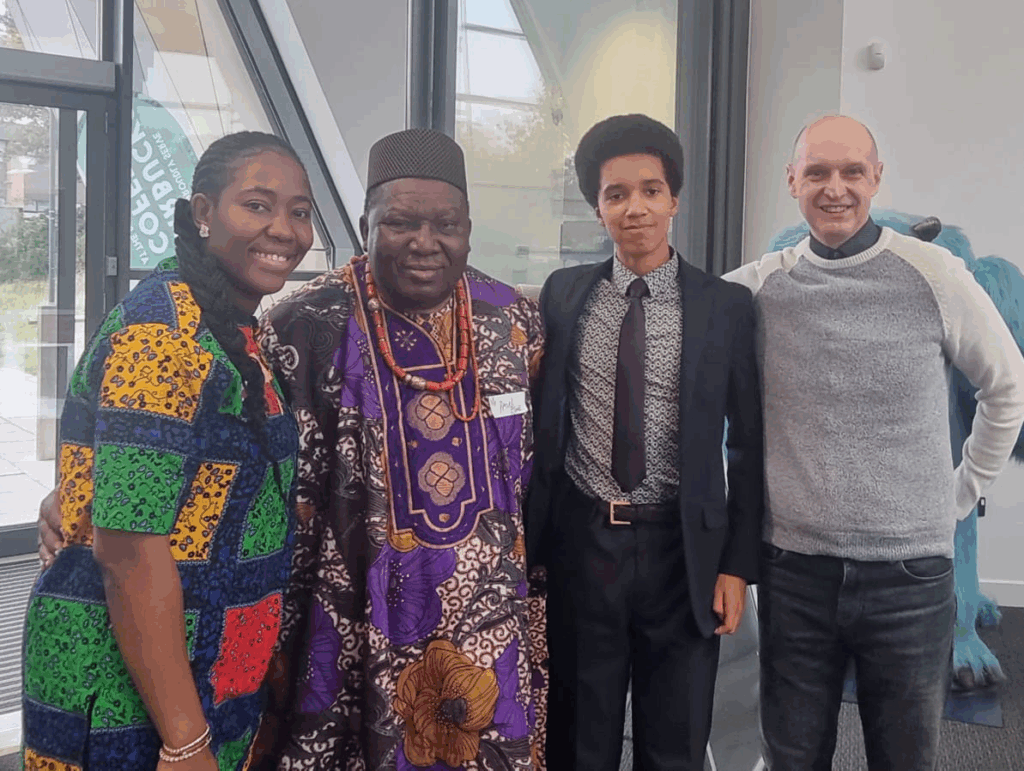
(L-R) Dr Emmanuella Ejime-Okereafor, her father, Paul Ejime, Master Andrew and his father Andrzej Szewezyk
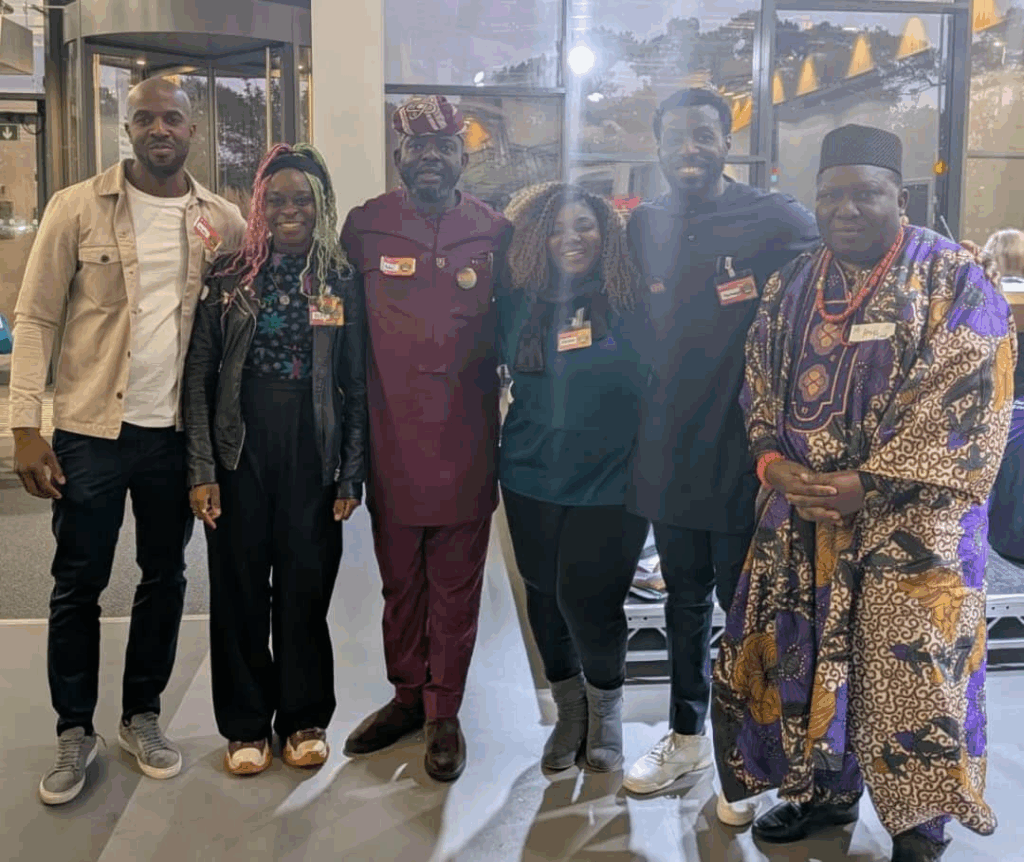
Another group of attendees
The event highlighted the university’s ongoing partnerships with organisations such as AFC Bournemouth, Dorset Race Equality Council, Citizen Advice and Nigerian Change Ambassadors, showing the collective strength of diverse voices working towards shared progress.
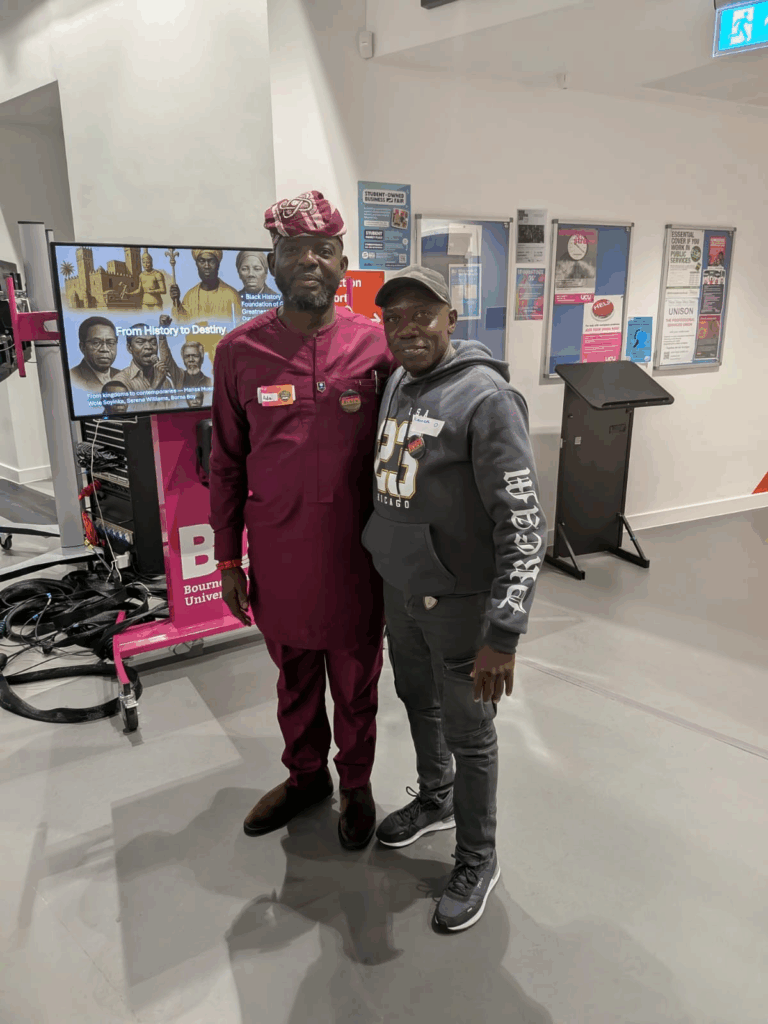
Paul Ejime is a Media/Communications Specialist and Global Affairs Analyst
![]()




